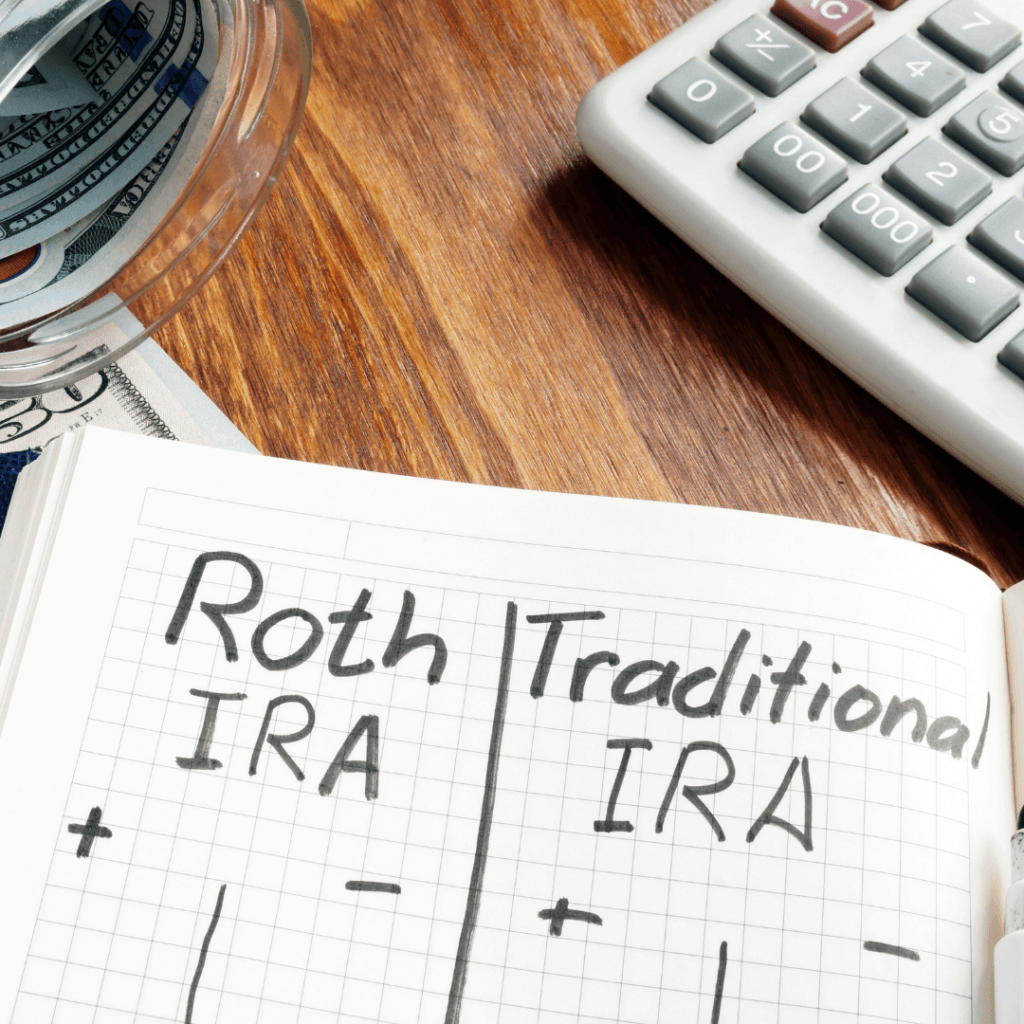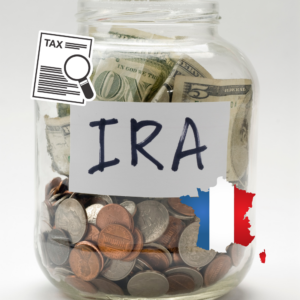
Roth IRA Conversions for Expats. American expats have many tax strategies when it comes to maximizing their retirement income. Most Americans are familiar with the terms 401K or traditional IRA since they are the most used investment vehicle in the United States.
The 401K is an employer-sponsored retirement account an employee can contribute income directly from his or her paycheck, while employers can match the contributions.
Some 401K plans will offer a Roth option but most people are not aware of the option. The traditional 401k can be rolled over into a Traditional IRA after leaving the company or at 59 ½ years of age.
Traditional IRA vs Roth IRA
It is important to understand the differences between a Traditional and a Roth IRA.
The first one is taxed deferred which means the funds contributed have never been taxed. That deferred taxation is especially great for high earners in a high tax bracket since the amount contributed will lower dollar for dollar the taxable income for that year. It is also a good option for someone who is expecting a lower income and tax rate in retirement.
One important fact about this tax-deferred growth option is that there is a required minimum distribution at 72 years of age. If you fail to withdraw the required minimum distribution (RMD) then the IRS will charge you a 50% penalty of that amount.
On the other hand, the Roth IRA is considered an after-tax contribution plan. The funds contributed have been taxed already and the main benefit of this option is that the funds are growing tax-free and will never be taxed in the future. There have been talks with the current Administration regarding new restrictions and income limitations on new Roth IRA contributions.
Another great advantage of using the Roth IRA is that there is no more required minimum distribution. That can be a really advantageous tax estate planning tool for people that want to transfer wealth to the next generation tax-free or take control of the net retirement income they need in retirement. It is important for American expats to know that this Roth conversion is available to them no matter how much income they make since the contributions to Roth IRA are limited to high earners.
Who does it benefit the most from a Roth IRA?
The Roth conversion can be ideal for an affluent person that was not able or not allowed to contribute to a Roth 401K or Roth IRA in the past and now would like to have a tax-free investment option in their portfolio. Timing is also really important since the amount converted will be added to the yearly taxable income and could move you to a higher tax bracket. This option works great for someone with variable income or in retirement. The most tax-efficient strategy is to choose the conversion amount wisely and on a year that income is expected to be lower. That way it minimizes the tax burden for that year and it can be done each year.
Tax-free Roth Conversion
There is an interesting strategy available for American expats that could be seen as too good to be true. If your income overseas is at or below the Foreign Earned Income Exclusion, then you could potentially use the amount of Standard deduction available to convert Traditional IRA funds into a Roth IRA Tax-free and the funds will remain free of taxes forever.
The current standard deduction for 2022 is $12,950 for a single and $25,900 for a married couple, filing jointly. This strategy can be done each year. This is a really specific solution for American citizens living abroad but it can also be used by any US-connected investor as long as you pay taxes in the US.
Roth IRA Conversion facts
- Conversion needs to happen by December 31st of the same year. It is not tax day.
- No Required Minimum Distribution
- No residency requirement
- No income requirement or limitation
- No age limit for conversion
- Tax-free growth and withdrawal
- Possible Tax-free Roth Conversion
Traditional IRA facts
- Income tax deduction dollar for dollar on all contributions (pre-tax)
- Required Minimum Distribution at 72 years of age
- All withdrawals are fully taxable at the marginal tax rate
- Upper-income restrictions on deductible IRA contributions
Common to both Roth and Traditional IRAs
- IRA contributions can be done until the last tax filing day
- Same maximum contribution limits yearly of $6000 or $7000 if 50 years old or older
- American Expats can contribute to both options
- No age limit for contributions
Key Takeaways
As you can see there are many factors that come into play when choosing the right investment options or tax strategy.
It is important to review all the options in detail before making a decision that can’t be changed back in the future.
It is key for Americans living abroad to know what solutions are available to them.
It is primordial to be able to have a holistic financial plan that takes this into question.
At Harrison Brook, we strive to give the best financial advice while understanding that expats will have to navigate a slightly different path. Living abroad brings some challenges but it is important to know that solutions are available whether you live in the United States or anywhere else in the world.
Get In Touch
At Harrison Brook, we are fee-only financial advisers. We never take a commission from providers and have access to the whole of the market to find the best solution for you.
If you have a 401K or Traditional IRA and are wondering whether you may be better off transferring your plan, please get in touch.
Video FAQ
5 Key Questions on Roth IRA Conversions for Expats
Subscribe to our YouTube Channel



